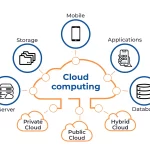The Evolution of Mobile App Development: From Simplicity to Sophistication
The Early Days: Basic Functionality and Limited Platforms Mobile app development started in the early 2000s when smartphones were just emerging. During this period, apps were simplistic and focused primarily on basic functionalities like messaging, contacts, and calendars. Developers primarily targeted specific platforms like Symbian, BlackBerry, and Windows Mobile, each with its own set of challenges and limitations. The App Store Revolution: iOS and Android The launch of the Apple App Store in 2008 and subsequently the Google Play Store revolutionized the mobile app landscape. These centralized marketplaces provided developers with a platform to showcase and distribute their apps to a massive audience. This led to a surge in app development, with a growing emphasis on user experience and innovative features. Rise of Native Apps: Power and Performance Native app development gained prominence as developers realized the importance of leveraging the full capabilities of the underlying operating systems. By developing apps specifically for iOS or Android, developers could harness the power of device-specific features, resulting in enhanced performance and a seamless user experience. Cross-Platform Development: Efficiency and Reach As the demand for apps grew, developers sought ways to streamline the development process and reach a wider audience. This led to the emergence of cross-platform development frameworks like React Native, Flutter, and Xamarin. These frameworks allowed developers to write code once and deploy it across multiple platforms, saving time and effort. The App Ecosystem: Integration and Interconnectivity Mobile apps became increasingly interconnected as developers recognized the value of integrating their apps with other services and platforms. APIs (Application Programming Interfaces) played a crucial role in enabling seamless integration with social media platforms, payment gateways, location services, and more. This integration fostered a more connected and personalized user experience. Mobile App Design: From Functionality to User-Centricity User interface (UI) and user experience (UX) design evolved significantly over time. Initially, apps focused on functionality, but as competition intensified, developers started prioritizing user-centric design. Intuitive interfaces, smooth navigation, and visually appealing layouts became essential elements in creating successful mobile apps. The Era of Mobile App Innovation: AI, AR, and IoT Recent years have witnessed the integration of cutting-edge technologies like Artificial Intelligence (AI), Augmented Reality (AR), and Internet of Things (IoT) into mobile apps. AI-powered personal assistants, AR gaming experiences, and IoT-enabled smart home apps are just a few examples of how technology has transformed the possibilities of mobile app development. Embracing Cloud-Based Solutions Cloud computing has revolutionized mobile app development by providing scalable storage and computing power. Cloud-based solutions enable developers to offload heavy tasks, such as data processing and storage, to remote servers, enhancing app performance and reducing device resource consumption. Conclusion: The evolution of mobile app development has been an exciting journey, driven by technological advancements and changing user expectations. From the early days of basic functionality to the sophisticated apps powered by AI, AR, and IoT, mobile apps continue to shape our digital experiences. As technology continues to evolve, it is certain that mobile app development will embrace new possibilities, further enhancing our interactions with the digital world.


































